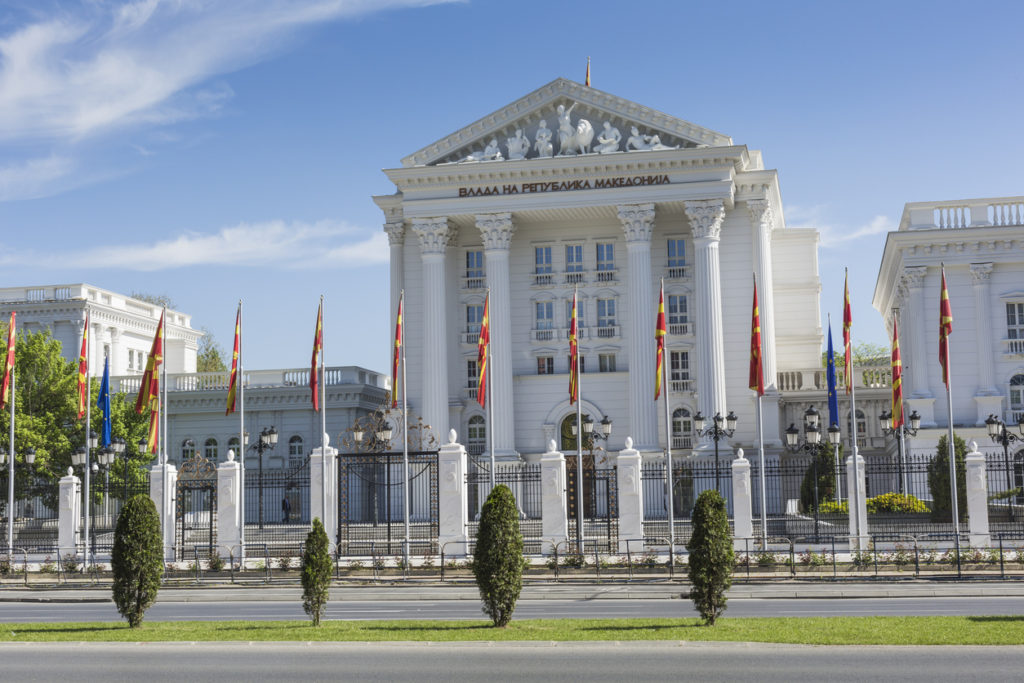Protesters stormed the Macedonian Assembly on Thursday the 27th of April, after politicians voted to confirm Talat Xhaferi as the Speaker of the Assembly.
The invasion of the Assembly building saw Zoran Zaev, the leader of the SDSM (Social Democrats, whose party aligned with ethnic Albanian parties to elect Xhaferi to his current position), assaulted alongside several other members of the SDSM.
Roughly 200 protesters managed to breach the Assembly’s security, apparently with little in the way of initial resistance from the Macedonian police on site. Some of the protesters were masked (video link). Riot police eventually forced the protesters from the building, using stun grenades to disperse them and allow the representatives to be evacuated. Police reported that 70 people, including an ethnic Albanian politician and a number of police officers, were injured in the violence.
Albanian Influence
Macedonia is one of the successor states to the Yugoslav Republic, seceding in 1991 and seeming to initially avoid the ethnic violence that afflicted most of the other former Yugoslav republics. However, it was significantly destabilised in the aftermath of the NATO intervention in Kosovo, which saw ethnic Albanian nationalists taking up arms and trying to declare a breakaway state in the majority Albanian regions, backed by seasoned KLA fighters. In 2001, this flared up into open conflict between the National Liberation Army (NLA) and the Macedonian security forces. The conflict ended in the summer of that year, followed by the destruction of NLA weapon caches, though low-level violence and provocations continued throughout the year. This was followed by a political process to give equal rights to ethnic Albanian citizens and put Albanian on co-equal footing as a language.
More recently, the NLA has staged a resurgence in northern Macedonia, undertaking a number of attacks on police officers yet failing in attempts to hold territory in the region. While significantly weaker than they were during the 2001 insurgency, this uptick in NLA violence has coincided with the ongoing Macedonian political crisis, which has paralysed the upper echelons of government since 2015.
Government Chaos
In the aftermath of the 2014 general election, SDSM leader Zoran Zaev claimed that the election was illegitimate, to which the government of Nikola Gruevski responded by claiming Zaev was conspiring with the British government to enact a coup. Zaev countered this claim with his own that Gruevski had wiretapped 20,000 Macedonian citizens, leading to widespread protests and the eventual resignation of Gruevski in 2016. However, the current President Gjorge Ivanov has been using his position to prevent further investigation into Gruevski and other VMRO-DPMNE politicians. Two heavily contest elections have followed, leading to the current impasse where President Ivanov is refusing to allow the SDSM to form a government while the VMRO-DPMNE is unable to secure coalition partners to form its own viable government.
Because of the specific way in which Albanian and Macedonian nationalism are intertwined with existing party politics, and the dangerous levels of dysfunction within the Macedonian government, the possibility of further unrest and violence seems quite likely.
Marc Simms is an occasional blogger for Proelium Law LLP. Marc holds a MLitt in Terrorism Studies and a Masters in International Relations, both from St Andrews. His particular interests are in emerging international security issues, unconventional warfare and terrorism.
Need advice?
If you’d like further information, or to discuss working with us, please get in touch






